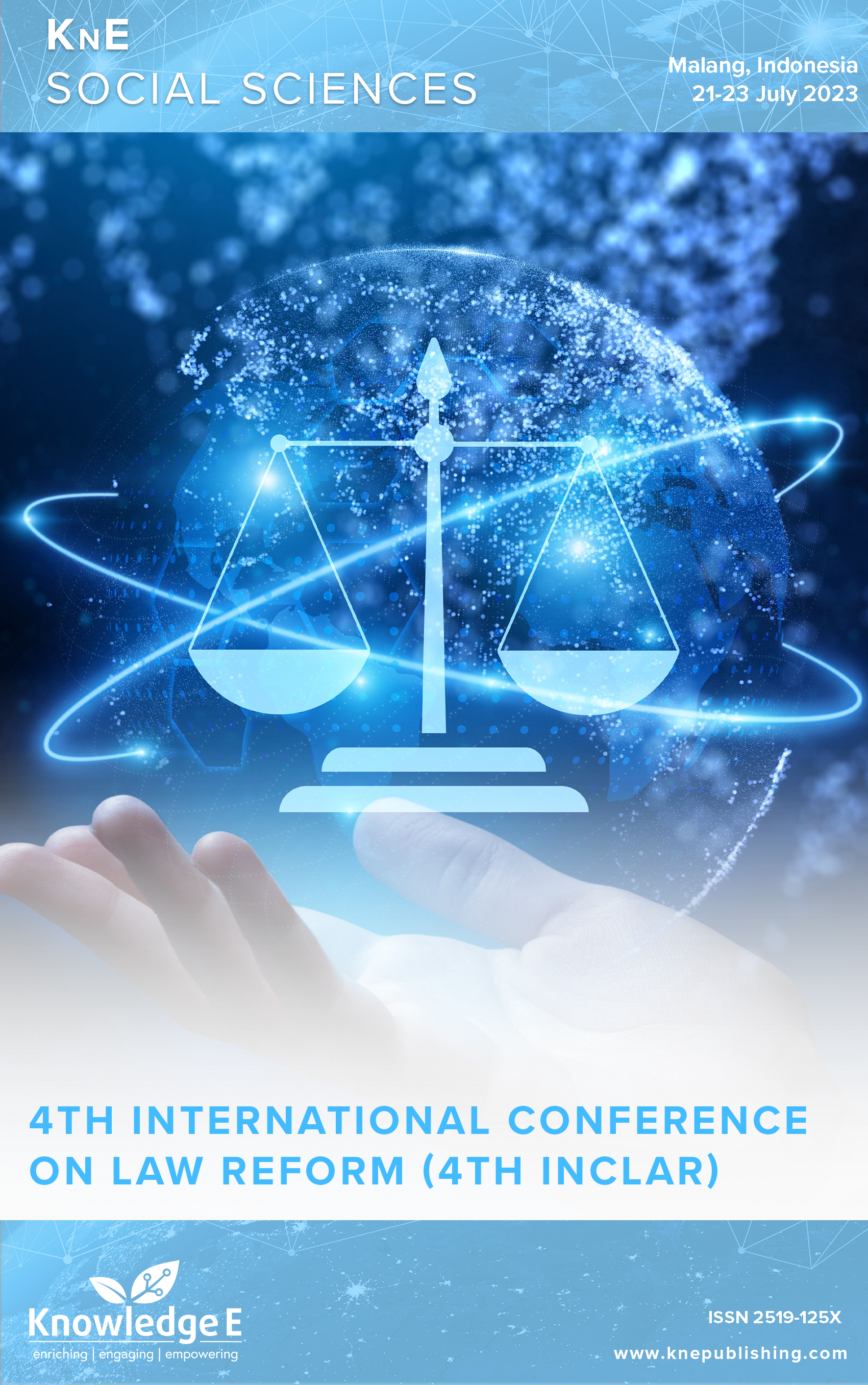Verbal Abuse Resulting from Rigid Stereotypes of Gender and Identity for LGBTQ+ People
DOI:
https://doi.org/10.18502/kss.v8i21.14706Abstract
Verbal abuse toward individuals who identify as LGBTQ+ are often rooted in rigid stereotypes and societal norms surrounding gender and identity. This type of abuse can range from derogatory comments and slurs to threats and harassment and can significantly impact the mental health and well-being of those who experience it. This study aimed to focus on verbal rejection, which is indirectly and unwittingly, carried out in the immediate environment of LGBTQ+ people. The main method of research conducted was primary data obtained directly from LGBTQ+ people, questionnaires were circulated randomly through social media, and then the data were analyzed by descriptive analysis. According to the study’s findings, verbal violence against LGBTQ+ individuals frequently occurs in Indonesia, since it is still considered to be a taboo or odd. In order to establish a more inclusive and accepting society for everyone, regardless of a person’s gender identity or sexual orientation, it is imperative to confront and destroy these harmful presumptions.
Keywords: verbal abuse, LGBTQ+, gender identity, harassment
References
Psi S. M. Th., CCP. Deny Surya Saputra, “Modul Sesi 11 - Psikologi Gender. GENDER DAN SEKSUALITAS; 2020.
Wood W, Eagly AH. Two traditions of research on gender identity. Sex Roles. 2015 Dec;73(11–12):461–73. DOI: https://doi.org/10.1007/s11199-015-0480-2
Dewi IA. Catcalling : Candaan, Pujian atau Pelecehan Seksual. Acta Comitas. 2019;4(2):198. DOI: https://doi.org/10.24843/AC.2019.v04.i02.p04
HS S, Nurbani ES. Penerapan Teori Hukum Pada Penelitian Disertasi dan Tesis, III., vol. CETAKAN KE-1. JAKARTA: RAJAWALI PERS, 2016.
Epstein L, Martin AD. The Oxford handbook of empirical legal research. Oxford Academic, Google Scholar, 2012.
Bagja Waluya. Sosiologi Menyelam Fenomena Sosial di Masyarakat, Cetakan Pertama. Bandung: Setia Puma Inves; 2007.
“LAPORAN KAJIAN”.
“Komunitas gay di Indonesia menggunakan media sosial untuk meruntuhkan batasan dan stigma.” https://theconversation.com/komunitas-gay-di-indonesiamenggunakan- media-sosial-untuk-meruntuhkan-batasan-dan-stigma-156868 (accessed Jun. 01, 2023).
Hendri Yulius. “The Dark SIde of LGBT Awareness in Indonesia.” https://www.thejakartapost.com/academia/2017/10/09/the-dark-side-of-lgbtawareness- in-indonesia.html, 2017.
“International Classification of Diseases - Wikipedia.” https://en.wikipedia.org/wiki/ International_Classification_of_Diseases (accessed Jun. 01, 2023).
Bretherton I, Thrower E, Zwickl S, Wong A, Chetcuti D, Grossmann M, et al. The health and well-being of transgender Australians: A national community survey. LGBT Health. 2021 Jan;8(1):42–9. DOI: https://doi.org/10.1089/lgbt.2020.0178
“Verbal Abuse: Definition, types, signs, and effects.” https://www.verywellmind. com/how-to-recognize-verbal-abuse-bullying-4154087#citation-7 (accessed Jun. 01, 2023).
Evan P. Victory over verbal abuse. New York: Adams Media; 2021.[Online, [cited 2023 Jun 01]], Available https://www.google.co.id/books/edition/ Victory_Over_Verbal_Abuse/FpA_DgAAQBAJ?hl=en&gbpv=1&dq=Patricia+ Evans,+%E2%80%9CVictory+Over+Verbal+Abuse%E2%80%9D,&printsec= frontcover
“Catcalling Definition & Meaning - Merriam-Webster.” https://www.merriamwebster. com/dictionary/catcalling (accessed Jun. 01, 2023).
Tauratiya T. “Perbuatan catcalling dalam perspektif hukum positif,” Ekspose: Jurnal Penelitian Hukum dan Pendidikan, vol. 19, no. 1, 2020, https://doi.org/10.30863/ekspose.v1i1.690. DOI: https://doi.org/10.30863/ekspose.v1i1.690

